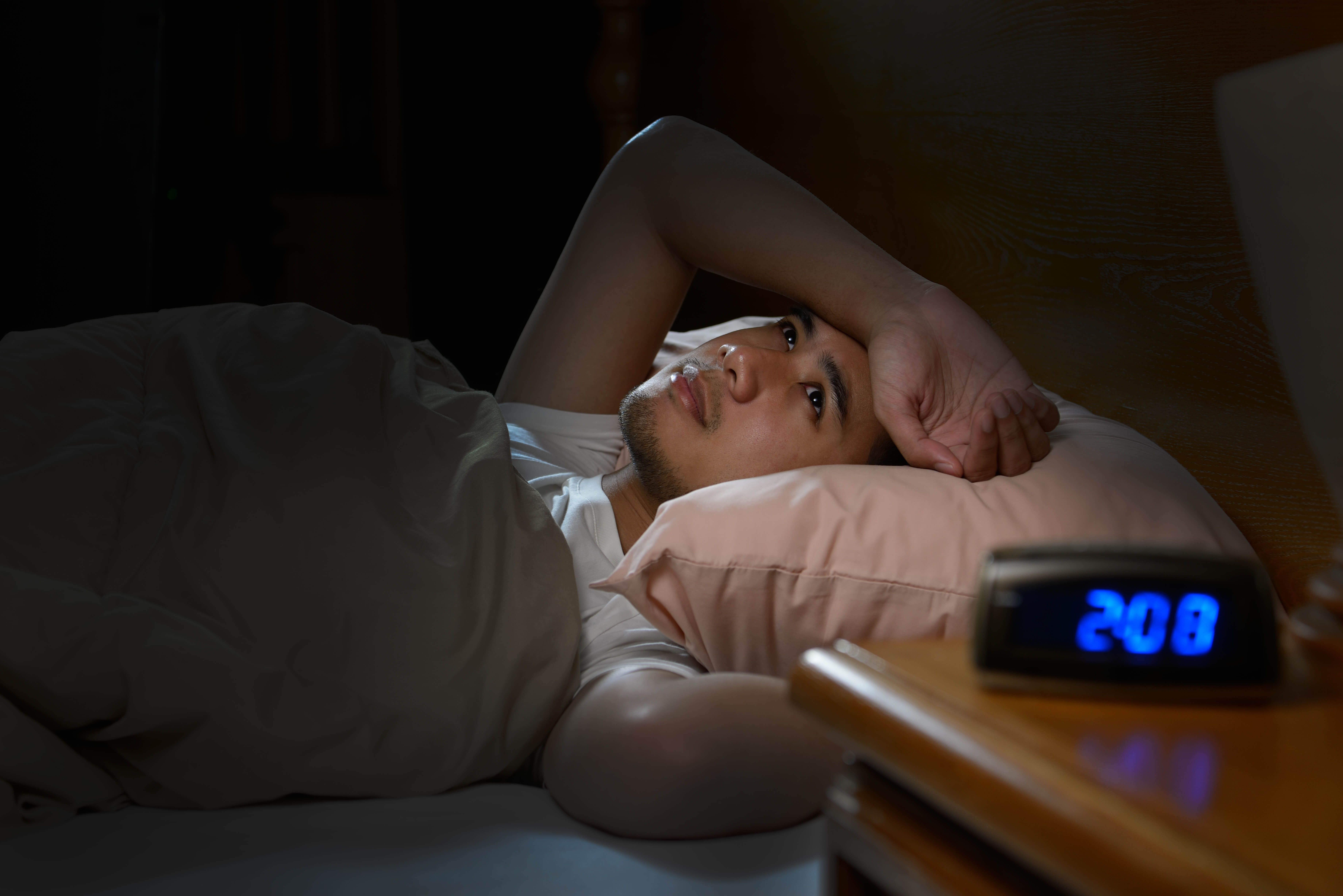Insomnia is a condition where the sufferer regularly experiences difficulty falling or staying asleep.
Insomniacs will often feel tired after waking up and can be irritable from lack of sleep. It is also difficult for sufferers to concentrate on tasks due to exhaustion and drowsiness. Insomnia is typically experienced for up to four weeks, however, long-term (or persistent) insomnia, can last much, much longer.
Some people function well and are not tired throughout the day with just 3-4 hours of sleep a night. However, the average adult needs between 7 to 9 hours to be well rested and healthy. Those who suffer from insomnia will regularly get less than their normal amount of sleep.
What Causes Insomnia?
- Insomnia can be caused by mental health issues such as stress, anxiety or depression
- Other illnesses can also contribute, for example, conditions causing pain, leg cramps, shortness of breath, indigestion, cough, and hot flushes
- Environmental factors such as noise, uncomfortable beds, a room that’s too hot or cold in temperature.
- Insomnia can also depend on what you have been consuming. Products like alcohol, caffeine, and nicotine are stimulants, which will keep you awake. Recreational drugs like cocaine and ecstasy can also affect sleep.
- Jet Lag
- Shift Work
How Can You Treat Insomnia?
There is no ‘cure’ for insomnia. The best method is to alter daily habits and stick to a daily schedule. Try going to bed at the same time every night and getting up at the same time every day. This will help your body to recognise that it is time to sleep every evening and you should get into a routine. In the same way, avoid sleeping in too late to make up for a lack of sleep and avoid napping during the day, as this will throw your schedule off, meaning you’re less likely to sleep on time.
- Avoid caffeine and other stimulants at least six hours before bedtime.
- Associate your bed with sleep – try not to watch TV or use electronics such as phones, tablets or laptops before bed. The artificial light from the screens will wake you up more. If you have to use electronic devices before bed, use the ‘night mode’ screen setting to dim the lights.
- Make time to relax before bed. This will ensure you’re calm and ready for bed. Try reading a book or having a bath. Avoid any strenuous mental activity at bedtime (e.g, doing a crossword in bed). Relaxing exercises like yoga are also recommended to help you fall asleep easier.
- Do not do any strenuous exercise within four hours of bedtime (but exercising earlier in the day is helpful).
- Make sure your bedroom is dark and quiet- use thick curtains, blinds, an eye mask or earplugs.
Medication is available over the counter from your local pharmacy to treat short-term insomnia. Your pharmacist can advise you on appropriate treatment. Some people use sleeping tablets to help them deal with insomnia. This can work temporarily, but they lose effectiveness the more often you taken them as your body becomes dependant on them, so it is best not to rely on them. They can also cause side effects such as drowsiness the next day, affecting concentration and performance at work. It is best not to drive, or operate machinery, the day after taking a sleeping tablet.
If you are worried or would like advice about insomnia you can speak to a licensed Online Doctor today with The GP Service. With appointments within 30 minutes, you can get expert help or prescriptions the same day!





